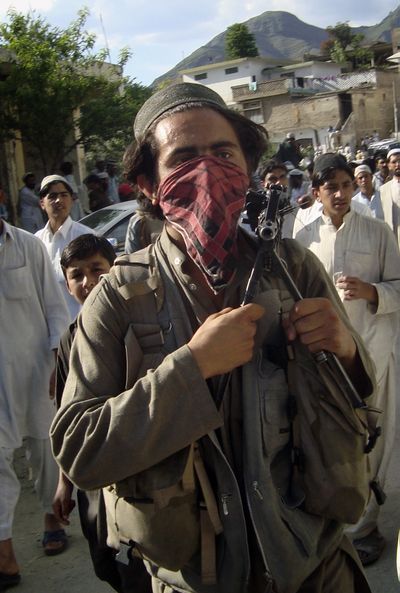Taliban pull back from near Islamabad
Militants were close to Pakistani capital

PESHAWAR, Pakistan – Taliban extremist forces withdrew Friday from the northwestern district of Buner after a week of rising fears that the armed Islamists could be setting their sights on the modern capital, Islamabad, just 60 miles south.
Regional officials in this northwestern city announced shortly after noon that the militant forces would leave Buner by night, and television news channels showed dozens of masked Taliban fighters climbing on trucks and driving out of the district’s main town, waving goodbye with their assault rifles.
The withdrawal appeared to be an attempt to salvage a crumbling, controversial peace deal in which the government of President Asif Ali Zardari agreed to allow strict Islamic rule in the Swat Valley and six surrounding districts, and the Taliban agreed to halt its armed intimidation of the populace.
It was not clear Friday whether the militants were making a tactical retreat in the face of rising domestic criticism and hints of punitive army action, or whether they had decided to halt their drive to forcibly spread Islamic rule from the tribal region near the Afghan border into the settled Pakistani heartland.
But perhaps the more significant change, analysts said, was the dramatic shift in official attitudes toward the fighters, whose weeklong advance from Swat into new areas of the North West Frontier Province was played down by Pakistan’s civilian and military leadership as recently as Thursday.
It wasn’t until the armed extremists occupied the adjacent Buner district and moved into a third area Thursday that the government, which recently endorsed the January peace agreement with the Taliban, suddenly realized that the radicals represented a serious potential threat and were brazenly violating the deal.
A simultaneous jolt came from the Obama administration, which warned bluntly that Pakistani authorities were abdicating power to the extremists and needed to respond forcefully.